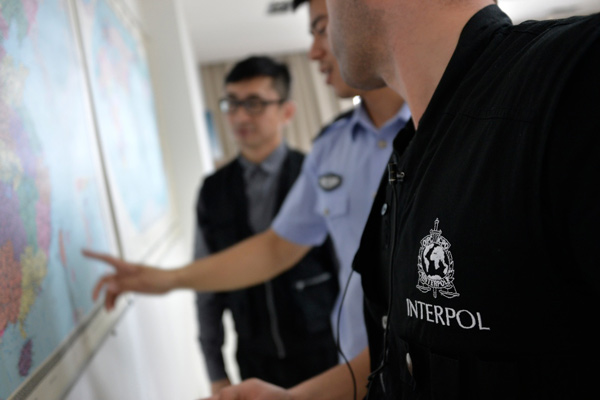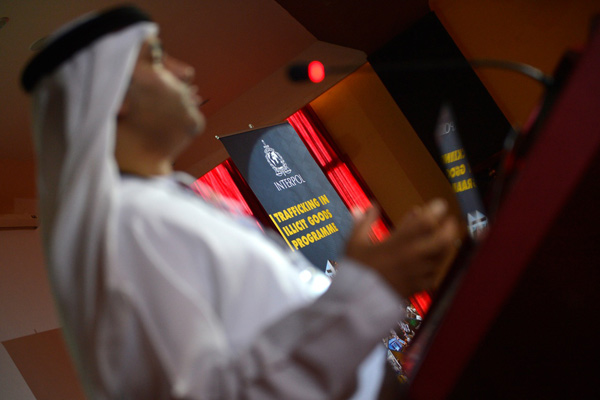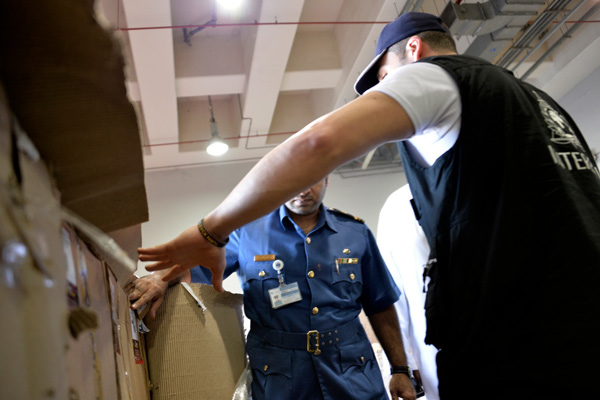LYON, France – Qatar has become the first country to request an INTERPOL Purple Notice in connection with illicit trade after the seizure of a machine used to change expiry dates on food and drink.
An investigation was launched following a routine store check by the Consumer Protection Department when an Inspector noticed the validity information printed on a range of drinks was not in the usual place on the bottle and in a different typeset to normal.
A search of the warehouse of the distributing company led to the discovery of 170,000 bottles of the out-of-date drink, and a sophisticated hot-stamp printer which was being used to re-print new expiry dates so the product could be offered for sale.
“Protecting consumer health and safety is a high priority for the Qatari authorities as part of our ongoing efforts to block illicit trade and counterfeiting, as Doha increasingly becomes a major hub for international trade,” said Brigadier Khalifa Alnasser, Head of the INTERPOL National Central Bureau in Doha.
“The request for the notice is part of ongoing efforts by the Qatar Ministry of Interior to work with the international community to combat trafficking in illicit goods and counterfeiting, and to prevent this type of criminal activity by sharing the modus operandi with other INTERPOL members countries,” added Brigadier Alnasser.
A 24-year-old Indian national has been arrested and faces charges under Qatar’s consumer protection laws in relation to commercial fraud and threats to food security.
An INTERPOL Purple Notice, used to seek or provide information on modi operandi, objects, devices and concealment methods used by criminals, has now been circulated to all 190 member countries.
“Criminals involved in illicit trade and counterfeiting are becoming increasingly sophisticated in order to try and get around laws which are in place to protect consumers from harm,” said Michael Ellis, head of INTERPOL’s Trafficking in Illicit Goods and Counterfeiting programme.
“Qatar’s request for a Purple Notice in connection with this case underlines that INTERPOL’s tools and services can be used to assist law enforcement in combating all types of crime. This investigation also underlines the value of experienced officials on the ground, as without the vigilance of this inspector this crime may never have been uncovered,” added Mr Ellis.
INTERPOL’s international system of notices is used by member countries to request cooperation or share critical crime-related information with their law enforcement counterparts around the world.
Launched in 2012 INTERPOL’s Trafficking in Illicit Goods and Counterfeiting programme seeks to identify, disrupt and dismantle the transnational organized networks behind this crime, and has already led to the seizure of counterfeit items worth more than USD 300 million and hundreds of arrests worldwide.
INTERPOL’s initiative assists police across its 190 member countries to not only target the transnational crime groups but also identify the routes used in transporting illicit goods, which are often also used for human trafficking and drug smuggling.
Core activities include regional and global operations and specialized training courses for police.







